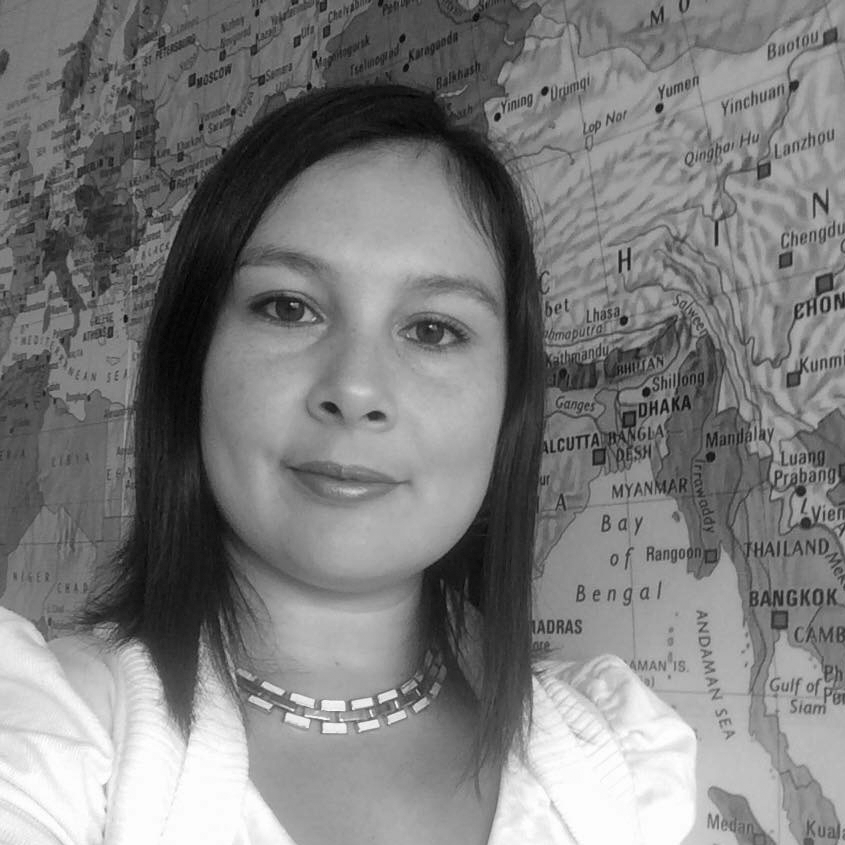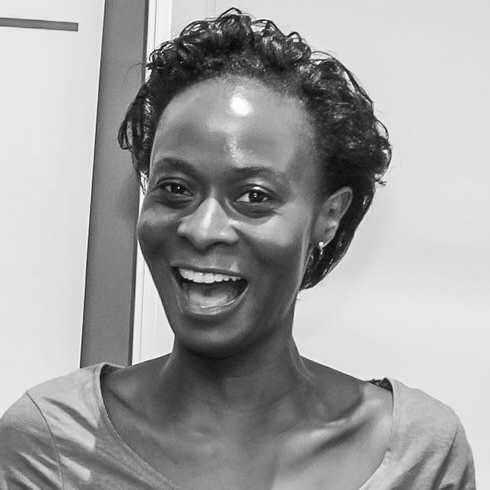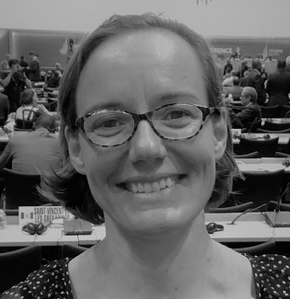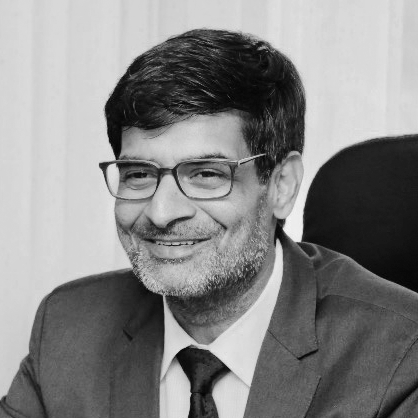Issues
-
Trust and security
Individuals, businesses and states face an array of cyber threats, which threaten our collective security, as well as human rights. State responses to cyber threats can undermine human rights as well—and the spaces where these responses are decided are often closed to civil society.
-
Platform and content governance
Online platforms are critical to freedom of expression, but can also facilitate the spread of harmful content like disinformation and hate speech. This is increasingly leading to stricter policy responses from governments and platforms, which are often developed in closed spaces, and fail to embed human rights standards.
-
New and emerging tech
New technologies, including AI and biometric and immersive technologies, carry enormous social and economic potential. But the scale and speed of their development and implementation are pushing existing legal and policy frameworks to their limit—and posing risks to privacy, freedom of expression and non-discrimination.
-
Internet governance
Critical discussions around the governance of the internet and digital technologies are taking place in a range of forums. Their outcomes could determine whether or not the internet remains global, open, and interoperable, as well as the future of its multistakeholder governance model. But many of these forums are not based in the human rights framework, and are geopolitically fractured.
How we work
-
Research and analysis
We produce research, analysis and monitoring updates to help actors navigate the complex digital policy ecosystem and to inform wider policy discussions and advocacy efforts.
-
Training and capacity building
We do training and capacity building for a range of stakeholders–including civil society, companies, policymakers and diplomats—to help them build the technical and policy knowledge and advocacy skills to effectively engage on digital policy and human rights issues.
-
Partnerships and subgrants
Through our projects, we have supported and partnered with more than 50 civil society organisations in over 30 Global South countries to promote diverse and inclusive perspectives in global, regional and national policy processes and outcomes.
-
Alliance coordination
We foster alliances, broker consensus and coordinate action between actors in several multistakeholder networks and alliances—including the IGF’s Policy Network on Internet Fragmentation, Global Network Initiative, and Global Encryption Coalition.
-
Strategic advocacy
We engage directly in a range of global, regional and national processes, advocating for a more open, transparent and inclusive approach, rights-respecting outcomes, and the inclusion of marginalised perspectives, particularly from the Global South.
-
Supporting the FOC
GPD currently houses the Support Unit for the Freedom Online Coalition, which plays a neutral role, providing administrative, substantive and coordination assistance to the Coalition and its members.
Team
-
 Lea KasparExecutive Director
Lea KasparExecutive Director -
 Rebecca ZausmerChief Operating Officer
Rebecca ZausmerChief Operating Officer -
 Maria Paz Canalesco-Head of Policy and Advocacy
Maria Paz Canalesco-Head of Policy and Advocacy -
 Daniela Schnidrigco-Head of Policy and Advocacy
Daniela Schnidrigco-Head of Policy and Advocacy -
 Donja GhobadiHead of Project Management
Donja GhobadiHead of Project Management -
Nick PowellProgramme Lead, Freedom Online Coalition Support Unit
-
 Ian BarberLead, Legal and Advocacy
Ian BarberLead, Legal and Advocacy -
 Ellie McDonaldLead, Policy and Advocacy
Ellie McDonaldLead, Policy and Advocacy -
 Akriti BopannaLead, Technical Standards and Advocacy
Akriti BopannaLead, Technical Standards and Advocacy -
 Rose PayneLead, Policy and Advocacy
Rose PayneLead, Policy and Advocacy -
 Nuša TomicDiplomatic Coordination Lead, Freedom Online Coalition Support Unit
Nuša TomicDiplomatic Coordination Lead, Freedom Online Coalition Support Unit -
 Keerti RajagopalanLead, Project Management
Keerti RajagopalanLead, Project Management -
Kara DaltonManager, Operations and HR
-
 Jonathan JacobsManager, Communications
Jonathan JacobsManager, Communications -
 Zora GouharyProject Manager, Freedom Online Coalition Support Unit
Zora GouharyProject Manager, Freedom Online Coalition Support Unit
Networks
We’re proud to be part of a number of networks and coalitions.
Partners
Our advocacy and projects are powered by our collaborations with partner organisations in different regions.
-
Global
Access Now; Article 19; Association for Progressive Communications; Center for Democracy and Technology; Chatham House; Diplo Foundation; Electronic Frontier Foundation; Epicenter.works; International Media Support; Internews; New America Foundation; Open Rights Group; Privacy International; Public Knowledge; Ranking Digital Rights.
-
Sub-Saharan Africa
Article 19 West Africa; Bloggers Association of Kenya; Center for Human Rights at the University of Pretoria; Centre for Multilateral Affairs; Collaboration on International ICT Policy in East and Southern Africa; Institute for Public Policy Research; Jonction; Kenya ICT Network; Media Institute of Southern Africa; Media Rights Agenda; Nigeria Network of NGOs; Paradigm Initiative; Protege QV; Research ICT Africa; West African ICT Action Network.
-
LATAM
Asociación por los Derechos Civiles; DataPrivacyBR Research; Derechos Digitales; Fundacion Karisma; Hiperderecho; InternetLab; Instituto Panamericano de Derecho y Tecnología; Red en Defensa de los Derechos Digitales; Sulá Batsú; TEDIC; Transparência Brasil.
-
Asia
Freedom Forum Nepal; Foundation for Media Alternatives; ICT Watch; Institute of Strategic and International Studies; Institute for Development and Freedom of Information; Lembaga Studi & Advokasi Masyarakat; The IO Foundation; Software Freedom Law Centre; Suara Rakyat Malaysia.
Funding
Our projects are made possible by a diverse range of funders, including private foundations, businesses, and governments.
Independence, transparency and integrity are intrinsic to our identity. We only accept funding which allows us to protect and uphold these values and further our mission.
GPD is a social purpose company. We believe that this model supports our sustainability, and gives us the flexibility to run our projects in a way which maximises their impact.
Our current and past funders include:
- Australian Department of Foreign Affairs and Trade Center for Democracy and Technology
- Chatham House
- Dutch Ministry of Foreign Affairs
- Estonian Ministry of Foreign Affairs
- Facebook UK Ltd
- Finnish Ministry for Foreign Affairs
- Ford Foundation
- Foreign Affairs Trade and Development Canada
- German Agency for International Cooperation
- Global Affairs Canada
- International Development Research Centre
- Google LLC
- Internet Society
- Irish Department of Foreign Affairs
- Meta Ireland
- Meta Platforms Inc
- Swiss Federal Department of Foreign Affairs
- U.S. Department of State – Bureau of Democracy, Human Rights, and Labor
- UK Foreign, Commonwealth and Development Office















